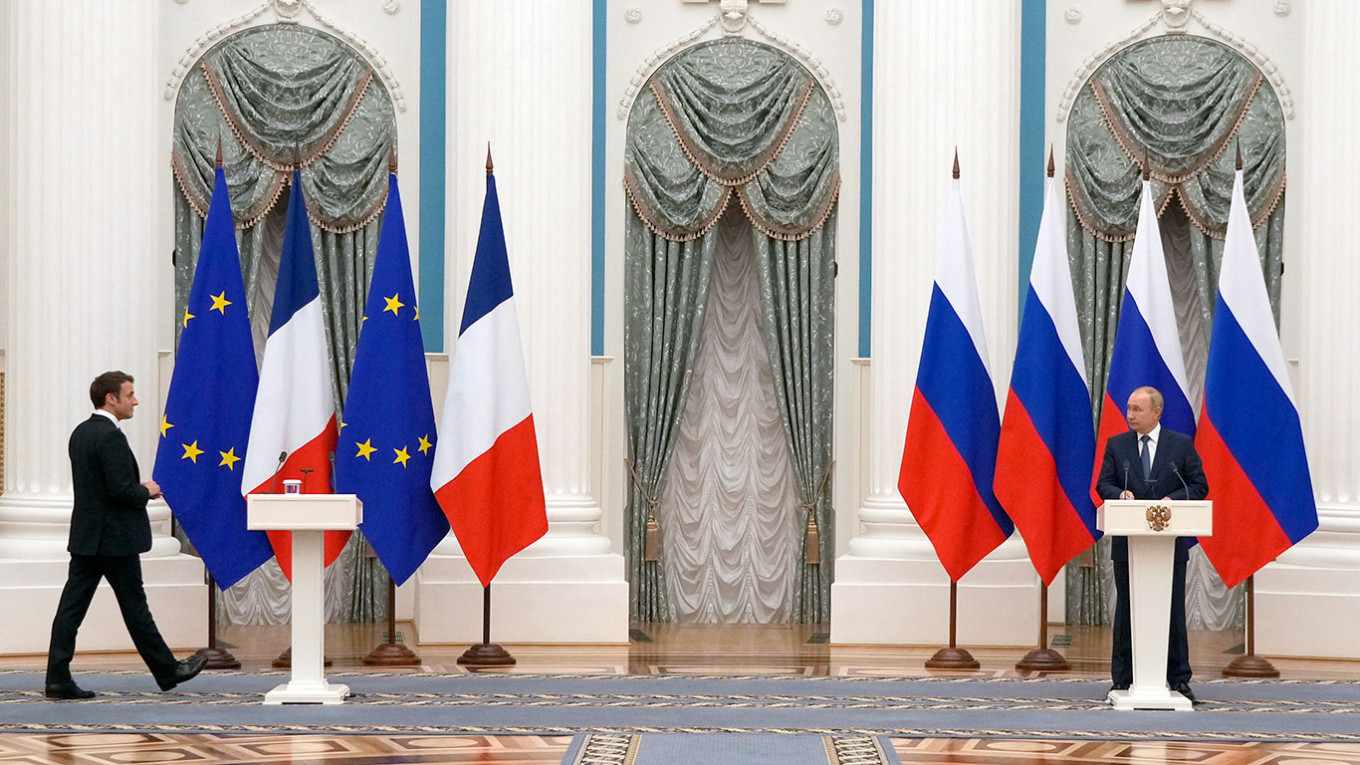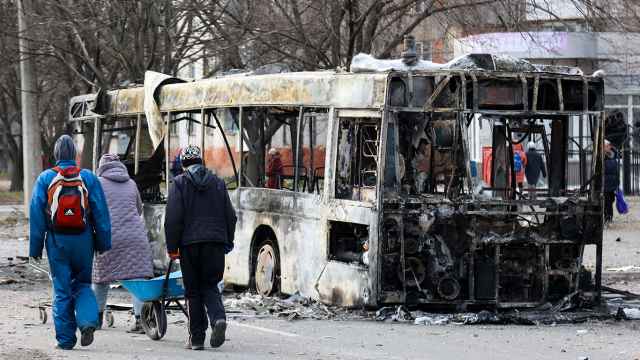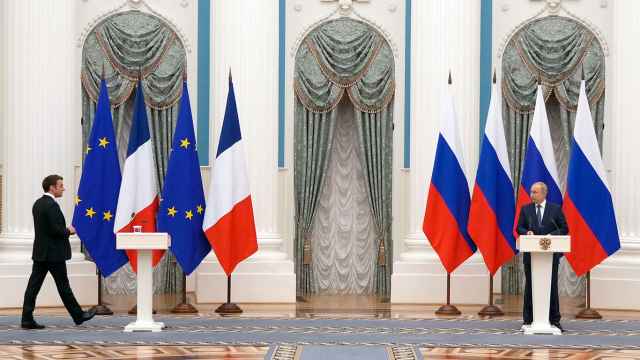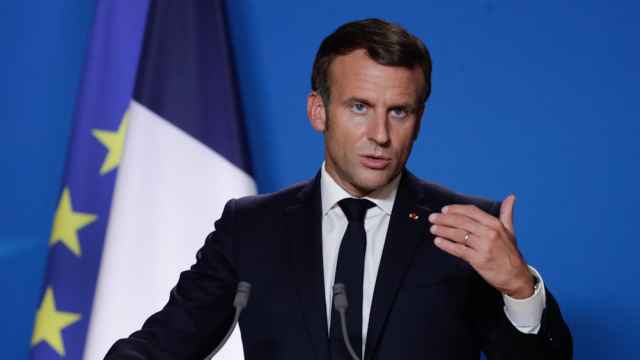French President Emmanuel Macron urged Russian leader Vladimir Putin on Tuesday to agree a ceasefire in Ukraine "as soon as possible" as the two held their first known phone talks in over 2.5 years, the Elysee said.
The Kremlin confirmed the conversation, saying that Putin blamed the West for the conflict and said any peace deal should be "long-term."
The talks lasted for more than two hours, and the two agreed to hold more talks on Ukraine and Iran in the future, the French presidency said.
Macron "emphasized France's unwavering support for Ukraine's sovereignty and territorial integrity" and "called for the establishment, as soon as possible, of a ceasefire and the launch of negotiations between Ukraine and Russia for a solid and lasting settlement of the conflict," Elysee Palace said in a statement.
A Kremlin statement said Putin "reminded [Macron] that the Ukrainian conflict is a direct consequence of the policy of Western states."
Putin added that Western states had "for many years ignored Russia's security interests" and "created an anti-Russian bridgehead in Ukraine."
The Kremlin said Putin told the French president that any peace deal should be "comprehensive and long-term, provide for the elimination of the root causes of the Ukrainian crisis and be based on new territorial realities."
'Coordinate efforts' on Iran
On Iran, "the two presidents decided to coordinate their efforts and to speak soon in order to follow up together on this issue," the French statement added.
The talks came after a ceasefire last week ended a 12-day air war that began after Israel launched attacks on Iran. Macron has previously urged Iran to ease tensions by moving to "zero enrichment" of uranium in its nuclear program.
Macron "emphasized the urgent need" for Iran to comply with its obligations under the Nuclear Proliferation Treaty, "in particular by cooperating fully with the International Atomic Energy Agency (IAEA), whose inspectors must be able to resume their work without delay," the statement said.
"He expressed his determination to seek a diplomatic solution that would allow for a lasting and demanding settlement of the nuclear issue, the question of Iran's missiles and its role in the region."
The French leader tried in a series of phone calls in 2022 to warn Putin against invading Ukraine and travelled to Moscow early that year.
He kept in contact with Putin after the invasion, but talks then ceased, with the last call between the presidents taking place in September 2022.
Macron has gradually toughened his stance on Russia, saying its expansionism threatens all of Europe.
The French president has also refused to rule out putting troops on the ground in Ukraine.
In April 2024, Russia's then-Defense Minister Sergei Shoigu and French counterpart Sebastien Lecornu, a close confidant of Macron, held talks focused on security in the run-up to the Olympic Games in Paris.
That was the last official high-level contact between the two countries.
A Message from The Moscow Times:
Dear readers,
We are facing unprecedented challenges. Russia's Prosecutor General's Office has designated The Moscow Times as an "undesirable" organization, criminalizing our work and putting our staff at risk of prosecution. This follows our earlier unjust labeling as a "foreign agent."
These actions are direct attempts to silence independent journalism in Russia. The authorities claim our work "discredits the decisions of the Russian leadership." We see things differently: we strive to provide accurate, unbiased reporting on Russia.
We, the journalists of The Moscow Times, refuse to be silenced. But to continue our work, we need your help.
Your support, no matter how small, makes a world of difference. If you can, please support us monthly starting from just $2. It's quick to set up, and every contribution makes a significant impact.
By supporting The Moscow Times, you're defending open, independent journalism in the face of repression. Thank you for standing with us.
Remind me later.






